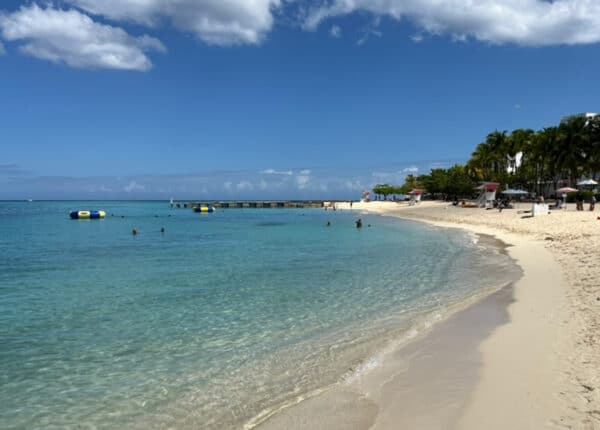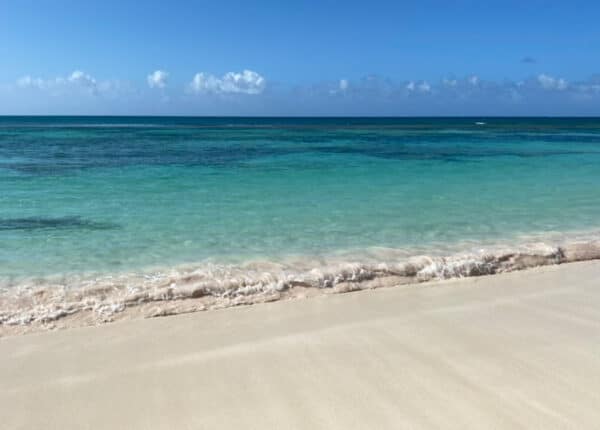Dennis Chung: The Role of Government in Caribbean Economies
By Dennis Chung
CJ Contributor
MY MOTHER USED TO SAY of children, it is sometimes better to be seen and not heard. These were of course in the days when parents ruled children, and not as it is today. So it should be or governments in market economies. That is it is always better for the market to realize that the government is always present to ensure equity, opportunity, and protection of the poor and most vulnerable exist.
In other words the government should be like a referee in a football match, who ensures that the game runs smoothly according to the rules governing football, but never interfering with the play by becoming an active participant. If the referee even gets in the way of a pass, even unintentionally, it can change the whole complexion of the game significantly.
This is what governments need to understand about how market economies run. This is because the government, amongst all the stakeholders, is the least efficient when it comes to allocating productive resources. Put another way, the referee is usually the one on the field with the least footballing ability, at the moment even if he/she used to be a very skillful player.
So what happens when the referee gets involved is that they, even if inadvertently, cause an unfair advantage for one side over the other. So this could mean that the better side loses the match because of an interference by the referee. The referee may for example give an unwarranted penalty against the better side, causing its players to become demotivated or even causing it more difficulty in obtaining the three points they deserve.
The result is a result that does not reflect the true potential of the teams, which will in turn affect the quality and integrity of the tournament, and if this happens too frequently will cause the spectators to stop attending matches, or even cause discontent among supporters and sponsors, which will eventually lead to financial failure and collapse of the tournament.
So those single episodes of interference by the referee can ultimately result in the demise of the tournament.
So, too the inability of the government to stick to its defined role in a market economy can ultimately lead to the decline in economic activity and the failure of the market to operate efficiently and result in poverty and decline.
My own view is that this is a role that the US governments have understood very well, and Caribbean governments have not. This is primarily why the US economy and society has done so well, and Caribbean economies and societies have not done so well. The fact is that (maybe because of our colonial and slavery past) Caribbean governments have preferred to act as “social workers,” dishing out welfare, rather than the referee who ensures fair play in the market and society.
This is the primary reason, in my view, why our economies seem to develop this dependency syndrome on governments, and why our economies have done so poorly, when compared to the rest of the world.
The fact is that we have become accustomed to a situation where market, and personal growth, depends on the welfare capacity of our governments. So if the government is not able to spend as it used to in the economy, then we face economic decline. And instead of trying to fix the problem permanently, by allowing the private sector to take charge, while government bureaucracy steps back, instead governments taxes more, thereby further restricting productivity and innovation, and distributes more welfare in order to solve unemployment problems.
The result of course is that private investors hold on to capital, or invest it where the environment is more friendly (which is why people were investing in the US at negative interest rates), and ultimately the poor gets poorer, and in order to keep up with the plan of more welfare, and state interference, the country borrows more money.
And guess who is most burdened with the debt, economic, and social challenges. And guess who ends up paying all the tax increases in the long run. None other than the poor, and most vulnerable, they are trying to protect.
On the other hand, guess who ends up getting all the welfare money eventually. None other than the owners of capital they are trying to tax.
So if we are going to play the market economy game, one of the first things to do is understand the most effective role that governments, and the private sector, has. In other words don’t play the goalkeeper in the forward’s role.
Dennis Chung is a chartered accountant and is currently Vice President of the Institute of Chartered Accountants of Jamaica. He has written two books: Charting Jamaica’s Economic and Social Development – 2009; and Achieving Life’s Equilibrium – balancing health, wealth, and happiness for optimal living – 2012. Both books are available at Amazon in both digital and paperback format. His blog isdcjottings.blogspot.com. He can be reached at drachung@gmail.com.







